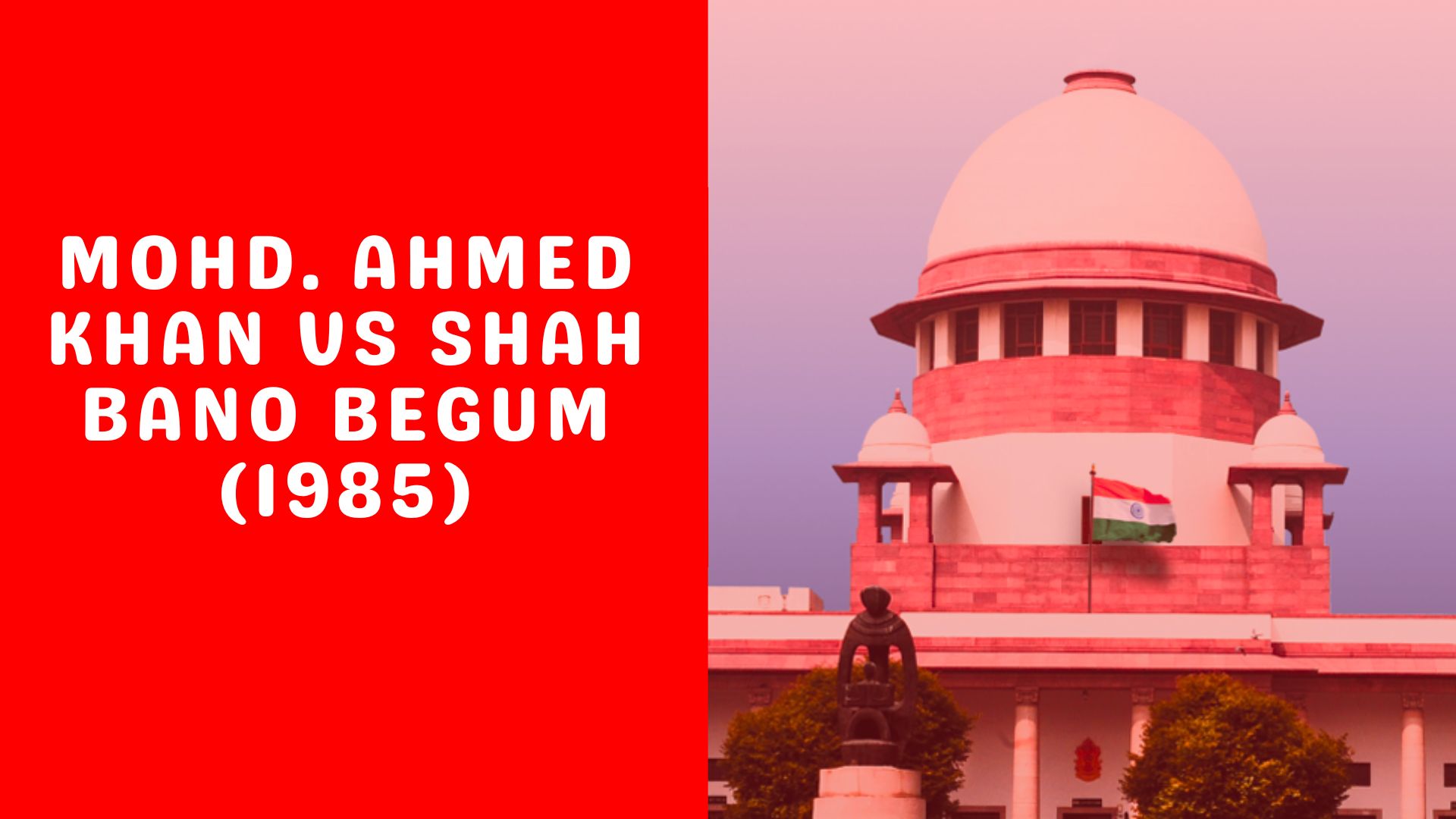
Case Summary: Mohd. Ahmed Khan vs Shah Bano Begum & Others (1985)
Court: Supreme Court of India
Case No.: Criminal Appeal No. 103 of 1981
Date of Decision: 23 April 1985
Bench: Full Bench
Hon’ble Judges: Y. V. Chandrachud (C.J.), Ranganath Misra, O. Chinnappa Reddy, E. S. Venkataramiah, D. A. Desai (JJ.)
Final Decision: Appeal Dismissed
Citations: (1985) ACR 327; AIR 1985 SC 945; (1985) 87 BOMLR 435; (1985) CriLJ 875; (1985) 1 Crimes 975; (1985) 1 SCALE 767; (1985) 2 SCC 556; (1985) 3 SCR 844
[Judgment Source]
https://www.courtkutchehry.com/Judgement/Search/AdvancedV2?docid=276095
Facts of the Case
The appellant, a Muslim advocate, married the respondent, Shah Bano, in 1932. They had three sons and two daughters. In 1975, the appellant expelled Shah Bano from the matrimonial home. In 1978, she filed a petition under Section 125 of the Criminal Procedure Code (CrPC) seeking maintenance of Rs. 500 per month. The appellant divorced her in November 1978 via irrevocable talaq and argued he had no obligation to pay maintenance beyond the iddat period, having paid Rs. 200 per month for two years and deposited Rs. 3000 as dower. The Magistrate awarded her Rs. 25 per month, later enhanced by the Madhya Pradesh High Court to Rs. 179.20 per month. The appellant challenged this in the Supreme Court.
Law Points Raised
1. Whether Section 125 CrPC applies to divorced Muslim women.
2. Whether the husband's obligation for maintenance ends after the iddat period under Muslim Personal Law.
3. Interaction between Section 125 CrPC and Section 127(3)(b) CrPC in light of Muslim Personal Law (Shariat) Application Act, 1937.
4. Relevance of Article 44 (Uniform Civil Code) of the Constitution in promoting gender equality.
Acts / Provisions / Articles Referred
• Muslim Personal Law (Shariat) Application Act, 1937 — Section 2
• Criminal Procedure Code, 1973 — Sections 125, 125(1), 125(3), 127, 127(3)(b)
• Constitution of India, 1950 — Article 44
Judgments Referred
• Bai Tahira v. Ali Hussain Fidaalli Chothia & Anr.
• Fuzlunbi v. K. Khader Vali & Anr.
Obiter Dicta
The Court observed that maintenance provisions under Section 125 CrPC are secular in nature and applicable to all citizens, irrespective of religion, to prevent destitution. It stressed that gender justice must prevail over personal law provisions where they conflict with basic human rights.
Ratio Decidendi
Section 125 CrPC applies to all, including Muslim women. The payment of maintenance beyond the iddat period is enforceable if the divorced woman is unable to maintain herself. Personal law cannot override the beneficial provisions of a secular statute aimed at preventing vagrancy.
Final Ruling
The appeal was dismissed. The Supreme Court upheld the High Court's order for maintenance to Shah Bano under Section 125 CrPC, even beyond the iddat period, reinforcing that statutory provisions for maintenance apply to all citizens regardless of religion.
Relevant Paragraph Numbers
Paras: 1, 2, 3, 4, 5, 6
Summary
This landmark judgment affirmed that divorced Muslim women are entitled to maintenance under Section 125 CrPC beyond the iddat period if they cannot maintain themselves. It upheld secular legal principles over personal laws where they undermine gender equality, and indirectly supported the need for a Uniform Civil Code under Article 44.
[Judgment Source]
https://www.courtkutchehry.com/Judgement/Search/AdvancedV2?docid=276095